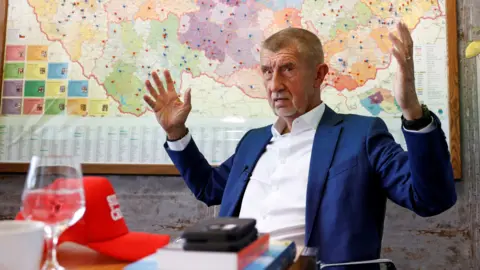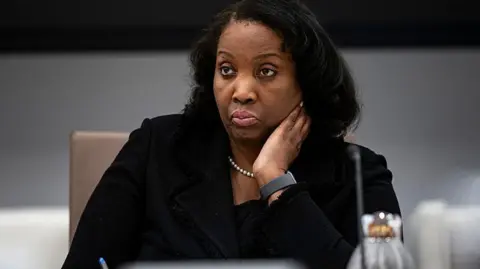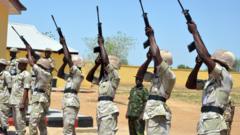In a contentious move, Cameroon's opposition leader Maurice Kamto has been disqualified from the presidential election set for October 12. This decision has left only 13 of the 83 candidates submitted to the electoral body Elecam eligible to run. Kamto, who came in second in the 2018 elections amid widespread allegations of electoral fraud, has yet to publicly respond to the decision barring him from the race.
The 92-year-old President Paul Biya, who is the oldest incumbent president worldwide, remains on the ballot seeking to secure an eighth term. Despite rising pressure to relinquish his long-held position, Biya insists he still has much to offer the Cameroonian populace, highlighting his deep-rooted presence in the country's political landscape for nearly 43 years.
Kamto's disqualification has been attributed to procedural issues with his candidacy registration under the Manidem party. According to party president Anicet Ekane, Kamto was arbitrarily excluded as another individual from a dissenting faction also registered under the party's name. Ekane has described this exclusion as "provocative" and has called on citizens to remain calm, asserting that the decision could still be overturned by the Constitutional Council.
Furthermore, candidates who have been disqualified have a two-day window to contest the ruling. This year, Kamto, who previously led the Cameroon Renaissance Movement (CRM) in 2018, faced additional hurdles as his party could not endorse any candidates due to a lack of elected representatives at various government levels. As a result, he recently affiliated himself with the Manidem party, which does maintain regional representation.
Among those cleared to contest the election are several notable figures, including renowned anti-corruption lawyer Akere Muna and Social Democratic Front (SDF) leader Joshua Osih. Notably, the list includes firebrand Mayor of Foumban, Patricia Tomaino Ndam Njoya, who stands out as the only female candidate amid a predominantly male contest.
This unfolding scenario marks a significant chapter in Cameroon's political dynamics, emphasizing the acute challenges surrounding democratic representation and electoral integrity in a country grappling with its political future.




















